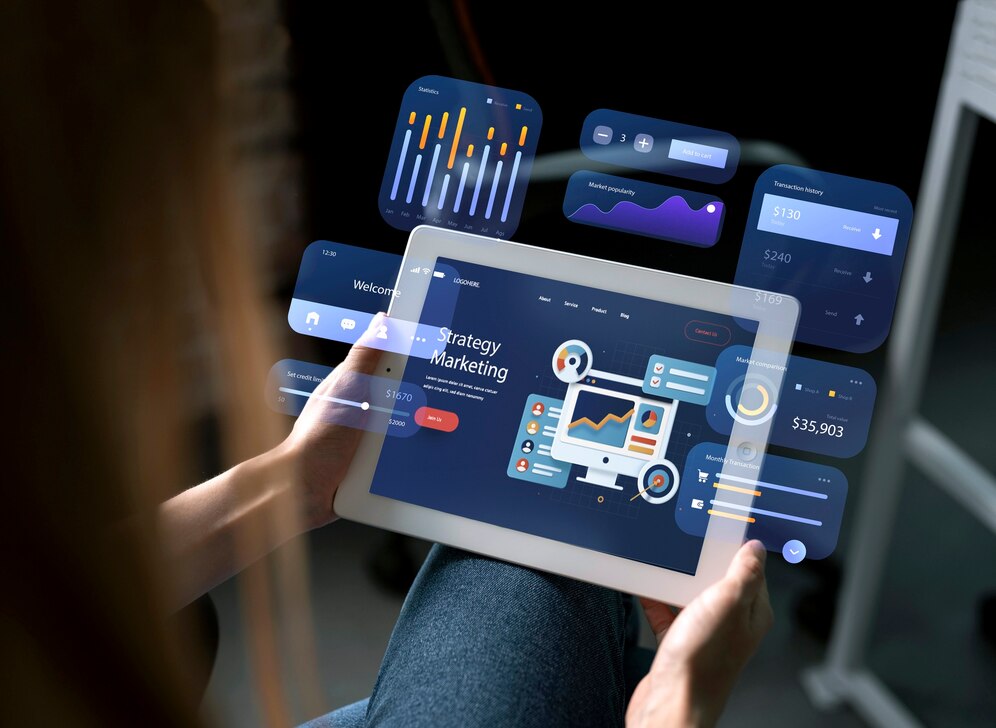Exploring the Multifaceted Applications of AI
Artificial Intelligence (AI) has emerged as a revolutionary force, transforming industries and enhancing daily life in unprecedented ways. From healthcare to finance, and from entertainment to transportation, AI is redefining how we interact with technology, making processes more efficient, and providing insights that were previously unattainable. This blog explores the multifaceted applications of AI, shedding light on its profound impact on various sectors.

Healthcare: A New Frontier
AI’s potential in healthcare is vast and transformative. By leveraging machine learning algorithms and big data analytics, AI is improving diagnostic accuracy, personalizing treatment plans, and accelerating drug discovery.
Enhanced Diagnostics
AI algorithms are capable of analyzing medical images with remarkable precision, often surpassing human capabilities. For instance, AI-powered tools can detect early signs of diseases such as cancer by examining radiology images, thereby facilitating early intervention and improving patient outcomes.
Personalized Medicine
The era of one-size-fits-all medicine is fading with the advent of AI. By analyzing a patient’s genetic makeup, lifestyle, and medical history, AI can help healthcare providers create personalized treatment plans that are more effective and have fewer side effects.
Drug Discovery
Traditional drug discovery is a time-consuming and costly process. AI accelerates this process by predicting how different compounds will interact with target proteins, thus identifying potential new drugs more quickly and efficiently.
Finance: Redefining Efficiency and Security
The financial sector has been an early adopter of AI, utilizing its capabilities to enhance efficiency, improve customer service, and bolster security.
Algorithmic Trading
AI-driven algorithms analyze vast amounts of market data in real-time, executing trades at optimal times to maximize profits. This method of trading, known as algorithmic trading, has become a staple in modern finance, providing a competitive edge in the fast-paced trading environment.
Fraud Detection
AI excels at identifying patterns and anomalies in data. Financial institutions use AI to detect fraudulent activities by monitoring transactions for unusual behavior, thereby protecting customers and reducing financial losses.
Customer Service
Chatbots and virtual assistants powered by AI are revolutionizing customer service in the financial sector. These tools provide instant responses to customer inquiries, perform routine tasks, and free up human agents to handle more complex issues.
Entertainment: Crafting Personalized Experiences
AI is at the heart of the entertainment industry, offering personalized content recommendations, enhancing creative processes, and transforming how we consume media.
Content Recommendations
Streaming services like Netflix and Spotify use AI algorithms to analyze user preferences and viewing/listening habits. By doing so, they can recommend content tailored to individual tastes, enhancing user satisfaction and engagement.
Creative Assistance
AI is not just a tool for content consumption; it is also a collaborator in content creation. AI algorithms can assist in generating music, writing scripts, and even creating visual art, pushing the boundaries of creativity.
Interactive Experiences
The gaming industry is leveraging AI to create more immersive and interactive experiences. AI-driven characters and environments adapt to player behavior, creating dynamic and personalized gaming experiences.
Transportation: Paving the Way for Autonomous Travel
The transportation sector is undergoing a significant transformation with the integration of AI, particularly in the development of autonomous vehicles and intelligent traffic management systems.
Autonomous Vehicles
Self-driving cars, powered by AI, are set to revolutionize transportation. These vehicles utilize machine learning and computer vision to navigate roads, recognize obstacles, and make real-time decisions, promising to reduce accidents and improve traffic flow.
Intelligent Traffic Management
AI is also being used to optimize traffic management. By analyzing traffic patterns and predicting congestion, AI can help city planners design more efficient road networks and reduce travel times.
Fleet Management
Logistics companies are using AI to manage fleets more efficiently. AI algorithms can optimize routes, predict maintenance needs, and reduce fuel consumption, leading to cost savings and improved service delivery.
Education: Personalizing Learning Experiences
AI’s impact on education is profound, offering personalized learning experiences, automating administrative tasks, and providing insights into student performance.
Adaptive Learning
AI-powered adaptive learning platforms tailor educational content to individual student needs, ensuring that each learner progresses at their own pace and receives support in areas where they struggle.
Administrative Efficiency
AI is streamlining administrative tasks such as grading, scheduling, and student enrollment. This automation allows educators to focus more on teaching and less on paperwork.
Performance Analytics
AI provides educators with insights into student performance through data analytics. By identifying patterns and trends, AI can help teachers develop targeted interventions and improve educational outcomes.
Conclusion
The transformative power of AI is evident across various sectors, enhancing efficiency, personalization, and innovation. As AI continues to evolve, its applications will only expand, offering new opportunities and challenges. Embracing AI responsibly and ethically will be key to unlocking its full potential and ensuring that its benefits are realized by all.
In summary, AI is not just a technological advancement; it is a catalyst for change, driving progress and reshaping the world in ways we are only beginning to understand. The future of AI holds limitless possibilities, and its journey is just beginning.


